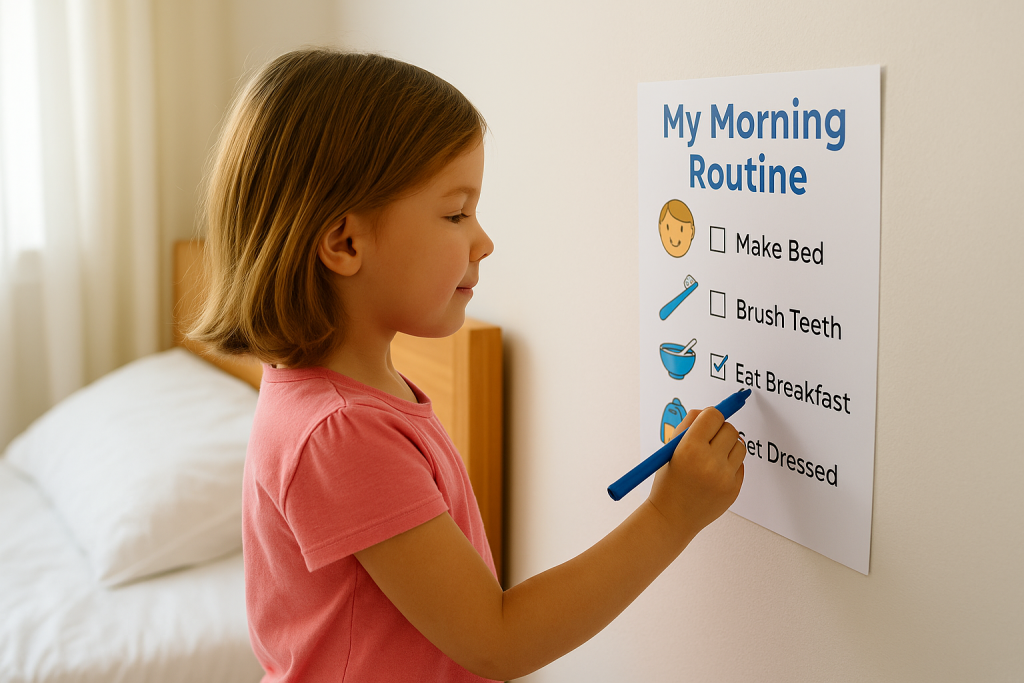Raise Confident Kids Today With These Proven Parenting Strategies
Confidence is not inherited—it’s nurtured through deliberate parenting choices. Every interaction between parent and child can either build or break self-belief. Parents must blend emotional intelligence, structure, support, and autonomy from the earliest years to raise confident kids today.
Laying the Groundwork for Confidence
Understanding the Roots of Child Confidence
Self-confidence is shaped by a child's experiences and how adults respond to their needs. Children who are seen, heard, and valued develop a deep-rooted sense of worth that becomes the foundation for decision-making, resilience, and independence.
Building Emotional Safety at Home
A confident child thrives in an environment where mistakes are not punished but explored. Creating emotional safety means listening actively, responding calmly, and embracing emotional expression without judgment or shame.
Daily Habits That Empower Children
Morning Routines That Spark Independence
Let children start their day with a purpose. Create a simple checklist they can follow independently—brushing teeth, getting dressed, choosing breakfast. Completing small tasks fuels competence and readiness for the day.

Evening Routines That Reflect Self-Worth
End the day with affirmations, gratitude journaling, or storytelling. This ritual supports mental health and reinforces a child’s ability to reflect, express, and value their unique experiences.
Language That Boosts Self-Esteem
Replace Praise With Encouragement
Rather than saying, “You’re amazing,” say, “You worked hard on that.” Praise temporarily inflates the ego; encouragement supports long-term self-belief by focusing on effort, strategy, and growth.
Use Empowering Words Daily
Language shapes identity. Words like “You are capable,” “You matter,” and “You make a difference” should be spoken regularly. These phrases become internal mantras that fuel self-confidence in challenging situations.
Encouraging Problem-Solving and Decision-Making
Letting Kids Make Small Choices
Offer children options throughout the day. Allow them to pick their outfit, choose between two snacks, or decide which game to play. These tiny decisions build trust in their judgment.

Teaching Through Natural Consequences
When safe and appropriate, allow kids to experience the consequences of their choices. Forgot a jacket? They’ll remember next time. These moments empower responsibility and resilience.
Modeling Confidence as a Parent
Show What Self-Respect Looks Like
Your child watches how you treat yourself. Set boundaries, speak kindly to yourself, and embrace growth over perfection. This silent modeling builds confident kids through a lived example.
Admit Mistakes Without Shame
Say “I was wrong” or “I’m learning too.” Children respect honesty and see that failure is part of success. This removes the fear of trying and failing—one of the biggest blocks to confidence.
Social Development and Confidence
Role-Playing Social Situations
Practice greetings, conversations, and conflict resolution with your child. Role-playing prepares them for real-world interactions and boosts social confidence.
Encouraging Group Participation
Sports, music, and team projects provide opportunities to learn collaboration and leadership. Kids' confidence grows when they experience achievement in group settings.
Nurturing a Growth Mindset
Reframing Failure as Feedback
Teach your child that mistakes are information, not identity. Use questions like “What did you learn?” and “What can you try differently next time?” to transform setbacks into stepping stones.
Celebrating Progress, Not Perfection
Acknowledge effort, persistence, and creativity. Highlighting small wins trains the brain to seek learning rather than results—a key to lifelong confidence.
Encouraging Creativity and Expression
Give Space for Artistic Expression
Let children explore art, music, writing, or building without correction or comparison. Creativity fosters self-trust and emotional expression.
Support Passion Projects
Whether they’re growing a garden or building a LEGO city, support their passions. Doing what they love builds identity, focus, and pride—key drivers of lasting confidence.
Building Emotional Intelligence
Teaching Children to Name Emotions
Use an emotion wheel or chart to help children identify how they feel. Emotional literacy helps them understand themselves and respond with intention.
Practicing Regulation Together
Teach calming techniques like deep breathing, stretching, or drawing. A confident child knows how to calm their mind and body in moments of stress.
Setting Healthy Boundaries
Empowering Kids With Limits
Boundaries provide safety. Explain rules with reasons, not commands. For example, “We wash our hands before eating to keep germs away.” Understanding boundaries increases cooperation and trust.
Teaching Respect for Others’ Space
Help children understand that their actions affect others. Please encourage them to ask before touching, interrupting, or sharing. Confidence paired with empathy creates emotionally mature individuals.
Helping Kids Navigate Peer Pressure
Building Inner Compass Early
Discuss values, right and wrong, and personal standards. A child rooted in family values is less likely to follow a negative influence.
Practicing Assertive Communication
Teach phrases like “I don’t want to” or “That’s not okay with me.” Role-play how to confidently say no, helping your child speak up for themselves respectfully.
Confidence Through Contribution
Involving Kids in Family Responsibilities
When children help set the table, feed the pet, or assist younger siblings, they feel needed and capable. Contribution strengthens identity and emotional investment in the family.
Volunteering and Community Service
Encourage participation in age-appropriate acts of service. Helping others builds empathy, leadership, and self-respect, which are key components of confident character.
Recognizing and Addressing Self-Doubt
Listening for Limiting Beliefs
Statements like “I can’t” or “I’m not good at” are clues. Gently challenge these with evidence of past successes or encouraging questions.
Replacing Negative Self-Talk
Teach your child to counter doubt with affirmations. Replace “I’m bad at math” with “I’m getting better every day.” Repetition rewires the brain for self-trust.
Supporting Confidence in School
Collaborating With Educators
Stay connected with your child’s teachers. Advocate for your child’s learning style and emotional needs. When school and homework are combined, confidence increases.
Encouraging Curiosity Over Grades
Ask questions like “What excited you today?” or “What felt hard?” Focusing on curiosity rather than test results nurtures intrinsic motivation and long-term confidence.
Creating a Confidence-Rich Environment
Display Their Work and Achievements
Put artwork, certificates, or thoughtful notes on display. This reinforces pride and validates effort without overindulgence.
Use Books and Media That Empower
Choose stories that reflect courage, creativity, and resilience. Diverse characters facing challenges and overcoming fear inspire children to do the same.
Handling Setbacks With Support
Stay Calm During Their Lows
When your child feels defeated, stay grounded. Validate their feelings and remind them that challenging moments don’t define them—they refine them.
Rebuilding Confidence After Failure
Help your child reflect, reframe, and reset. “What would you try next time?” or “What did you do well even if it didn’t work out?” gives them tools to bounce back.

Long-Term Vision for Raising Confident Kids
Focus on Who They Are Becoming
Look beyond grades, trophies, or social success. Prioritize kindness, curiosity, bravery, and honesty. Confidence rooted in character endures beyond childhood.
Guide Don’t Control
Let go of micromanaging. Offer support, not solutions. Confident kids grow when they feel trusted to try, stumble, and try again.
Conclusion
To raise confident kids today, start with everyday actions that build trust, resilience, and self-worth. Confidence isn’t something you give a child—it’s something they grow into when nurtured by presence, patience, and purpose. These parenting practices transform your child’s self-belief and their entire future.

